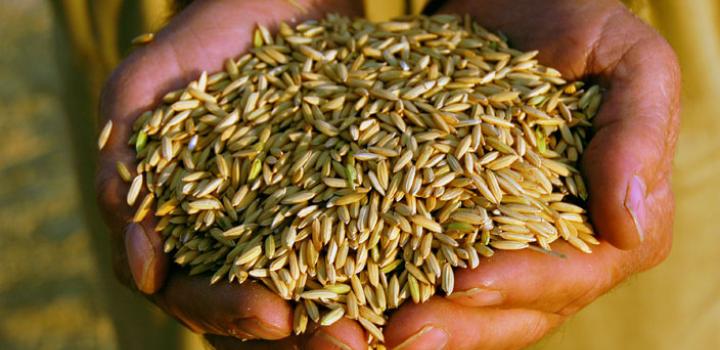Tropical Storm Gordon could devastate Arkansas row crops
by September 4, 2018 6:52 pm 928 views

Arkansas row crop farmers have battled international trade wars, low prices, and volatile weather conditions. A new and serious danger is now lurking off the Gulf Coast – Tropical Storm Gordon.
The powerful storm is expected to make landfall, possibly as a hurricane, through parts of Mississippi and Alabama Tuesday night and its remnants could be in the Natural State sometime Wednesday, according to the National Weather Service.
NWS predicts 4-8 inches of rain could fall in parts of the state and there could be isolated spots where a foot of rain could fall. Rice, soybeans, and corn are now being harvested, and the timing could not be worse, rice agronomist Dr. Jarrod Hardke said. Farmers operated their combines non-stop during the Labor Day Weekend, but there’s still a lot of crops still in the field.
Many farmers worked until dark each day, but moisture prevented them from working through the night, he added. Tractor dealerships and mechanics have been working around the clock, too.
“Not that there’s a good time for a tropical storm or potential hurricane, but this could possibly be one of the worst for us,” Hardke said, adding that cool weather in early August delayed rice maturity, putting growers in a hurricane season bind. “If growing conditions had been close to average, we should’ve been close to 50% harvested now. Instead we’re going to be about 25%.”
Bob Scott, head of the Division of Agriculture’s Rice Research and Extension Center at Stuttgart said his crews were racing to get foundation seed for Arkansas rice varieties out of the fields. Scott said he had some concerns about the storm causing the plants to “lodge,” or lean at an angle that makes it difficult for the combines to pick it up.
“We didn’t need this. Even though it’s been dry, we don’t need the rain now,” he said, adding that his shop crews have been putting in a lot of hours on combines. “They’ve been repaired, re-belted, new tires and working on all the things that break down during a season. They’ve been working overtime.”
